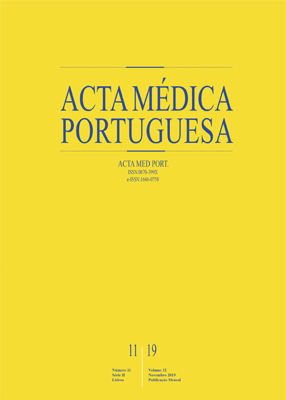Work-Family Balance Within the Medical Profession: An Exploratory Study
DOI:
https://doi.org/10.20344/amp.11997Keywords:
Family, Job Satisfaction, Physicians, Portugal, Work-Life Balance, Work Schedule Tolerance, WorkloadAbstract
Introduction: The aim of this study is to characterize and assess work-family balance within the medical profession in Portugal.
Material and Methods: This cross-sectional and exploratory study analyzed a sample of 181 doctors who are members of the Portuguese Catholic Doctors’ Association. A qualitative survey with multiple-choice questions was applied in order to assess socioeconomic and working conditions as well as work-family balance. Descriptive and linear regression analyses were carried out.
Results: Nearly 40% of the surveyed doctors negatively assessed the work-family balance within the private sector. As for the Portuguese National Health System, 73% negatively assessed the work-family balance within the public sector. More than half of those surveyed (56%) worked more hours than what they considered as harmful for their work-family balance and the vast majority was working at the limit or overtime. Data collected enabled us to associate a heavier workload with working in the emergency room, age and men. Moreover, it was observed that working more hours was not linked to having children or being married.
Discussion: In our study, the three measures of work-family balance that the participants considered to be the most important were the possibility of flexible scheduling, part-time work and temporarily reducing working hours (e.g. for family assistance). These aspects may explain the differences found in the assessment of work-family balance between the public and private sector.
Conclusion: Due to the demanding nature of the medical profession, doctors are placed into a particularly risky situation in order to achieve a suitable work-family balance. The results of our study indicate a general dissatisfaction regarding this balance – special in the public sector – which is mainly associated with excessive weekly working hours.
Downloads
Downloads
Published
How to Cite
Issue
Section
License
All the articles published in the AMP are open access and comply with the requirements of funding agencies or academic institutions. The AMP is governed by the terms of the Creative Commons ‘Attribution – Non-Commercial Use - (CC-BY-NC)’ license, regarding the use by third parties.
It is the author’s responsibility to obtain approval for the reproduction of figures, tables, etc. from other publications.
Upon acceptance of an article for publication, the authors will be asked to complete the ICMJE “Copyright Liability and Copyright Sharing Statement “(http://www.actamedicaportuguesa.com/info/AMP-NormasPublicacao.pdf) and the “Declaration of Potential Conflicts of Interest” (http:// www.icmje.org/conflicts-of-interest). An e-mail will be sent to the corresponding author to acknowledge receipt of the manuscript.
After publication, the authors are authorised to make their articles available in repositories of their institutions of origin, as long as they always mention where they were published and according to the Creative Commons license.









